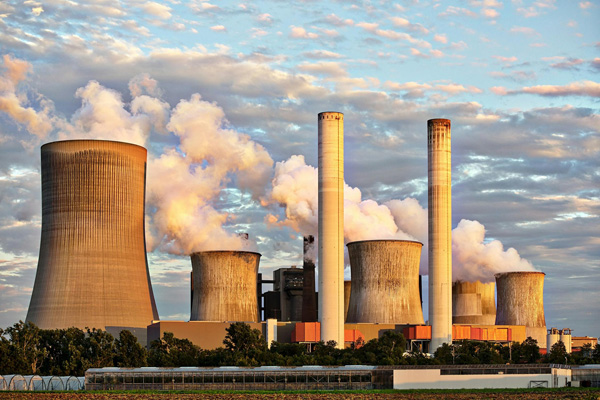COP29 spotlights nuclear technology as key climate change solutions

[Nuclear energy. Photo Credit to Pexels]
Nuclear energy is taking center stage at COP29 as the International Atomic Energy Agency (IAEA) highlights its vital role in combating climate change through mitigation, adaptation, and sustainable development.
With over 40 dedicated events, the IAEA aims to showcase how nuclear technologies can power the transition to net-zero emissions, ensure food and water security, and monitor environmental impacts.
At the heart of the IAEA’s presence is the Atoms4Climate pavilion, which will demonstrate how nuclear energy contributes to decarbonization and addresses global climate challenges.
The Agency’s experts will engage with stakeholders and answer critical questions about the role of nuclear technology in building a sustainable future.
COP29 builds on the consensus achieved at COP28 in Dubai, where the Global Stocktake underscored the urgent need for scaling up low-emission technologies, including nuclear power.
The landmark moment reaffirmed nuclear energy as a vital component in achieving deep and rapid decarbonization.
“At COP28, the world agreed nuclear power must be part of the transition to net zero,” said IAEA Director General Rafael Mariano Grossi.
“As we move from consensus to construction, the IAEA is committed to supporting countries in developing safe, sustainable nuclear power programs,” Grossi added.
The IAEA’s advocacy aligns with findings from a recent UN report warning that current policies and investments are insufficient to limit global temperature rise to below 1.5°C, the critical target set by the Paris Agreement.
During a high-level event on November 13, Director General Grossi will join representatives from the COP29 Presidency, the International Energy Agency (IEA), and multilateral development banks to discuss financing low-carbon technologies, including nuclear energy.
Among the innovations being promoted at COP29 are small modular reactors (SMRs), which offer scalable and cost-effective solutions for various energy needs.
On November 12, Mr. Grossi will co-host a high-level event with the U.S. government to explore the potential of SMRs in powering small grids, energy-intensive industries, and even maritime vessels.
These reactors are particularly suited for developing nations seeking sustainable energy options.
The IAEA’s climate action extends beyond energy production to innovative uses of nuclear science in agriculture, water management, and environmental monitoring.
On November 12, Director General Grossi will co-host an event on decarbonizing the cotton-to-clothing value chain with the United Nations Industrial Development Organization (UNIDO), the Food and Agriculture Organization (FAO), and the World Trade Organization.
This initiative highlights the role of nuclear techniques in reducing carbon footprints across industries while fostering climate resilience.
The IAEA’s Atoms4Food initiative will also be showcased in a session hosted by China, emphasizing nuclear-enabled climate-smart agriculture projects.
On November 20, a related event will spotlight the benefits of South-South collaboration in implementing these solutions.
Another focus of the IAEA’s participation is glacier retreat, a critical climate change indicator that affects water resources worldwide.
Through multiple events, the Agency will emphasize the importance of monitoring glacier melt to ensure sustainable water supplies for future generations.
On November 18, the IAEA will host an event highlighting advanced nuclear technologies for climate solutions.
This session will explore innovations in crop resilience, pollution monitoring, and disease control, stressing the need for global collaboration and increased funding for research and development.
With nuclear energy recognized as a cornerstone of the clean energy transition, COP29 offers a platform for the IAEA to advance its vision of sustainable climate solutions.
“Investment in nuclear power can lower grid costs and accelerate the deployment of other clean-energy technologies,” said Director General Grossi.
As the world gathers in Baku, the IAEA’s participation underscores the critical role of nuclear science and technology in addressing the climate crisis and achieving global sustainability goals.

- Geonwoo Kim / Grade 11
- North London Collegiate School Jeju

![THE HERALD STUDENT REPORTERS [US]](/assets/images/logo_student_us.png)
![THE HERALD STUDENT REPORTERS [Canada]](/assets/images/logo_student_ca.png)
